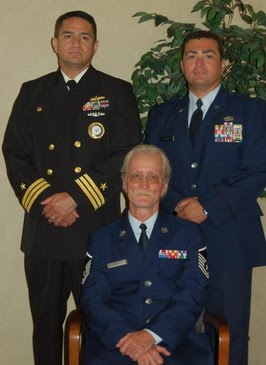The Sunday after Thanksgiving, NBC's Tim Russert hosted a "Meet the Press" roundtable with four Washington journalists: the Washington Post's David Broder and Eugene Robinson, NBC's David Gregory, and Judy Woodruff, formerly of CNN. Mr. Robinson captured the tenor of the discussion when he said "there's general agreement" in Washington "that there will be a mess in Iraq when U.S. troops finally withdraw." Mr. Russert suggested that the President should be "backing off his stated goal of democracy in Iraq," and none of the panelists disagreed. None of them acknowledged that elections in Iraq were 2 1/2 weeks away. It was as if that news had not penetrated the Beltway media bubble.There’s much more than this, however. As an example, Mr. Taranto dissects the whole Valerie Plame situation and reaches some interesting conclusions, not the least of which was the incredible turnaround exhibited by the New York Times and other media when it became apparent the government was gonna go after reporters and their sources, and hard. Oops! A classic case of “be careful what you wish for,” no?
It would be fatuous to deny that this dour drumbeat of defeatism has some effect on public opinion, which after all is driven by the most fickle members of the public. By last fall, polls consistently showed that a majority of Americans thought it had been a mistake to liberate Iraq, though some 70% had favored the war when the shooting began in March 2003. But a majority continue to oppose a precipitous withdrawal. Most Americans, it seems, do not want another Vietnam, which they understand to mean a self-inflicted American defeat.
The media's one-sided coverage may actually undermine the antiwar cause. It does a disservice to antiwar politicians by giving them the impression that the public is fully behind them--an echo-chamber effect similar to that which helped John Kerry lose the election of 2004 (see "Kerry's Quagmire," July 20, 2005). Thus in December, when Democratic National Committee chairman Howard Dean responded to the media panic by declaring that "the idea that we're going to win this war is an idea that, unfortunately, it's just plain wrong," fellow Democrats scrambled to distance themselves from him.
I’m not sure I agree with Mr. Taranto’s premise (“the media won’t defeat America”), however. While I wish with all my heart that he proves to be correct, I think the jury is still out. My gut tells me more Americans watch the network news and read their local papers than read alternative news outlets, like the blogs. And this worries the HELL out of me. As Mr. Taranto so ably illustrates, the media have an agenda driven by a Liberal-Left worldview. This agenda, forged during Watergate/Viet Nam and perpetuated lo these many years, is an agenda of pessimism and distrust, bordering on paranoia. The media’s glasses are definitely half-empty when it comes to government in general, and George Bush’s government, in particular. I applaud skepticism, and we need investigative journalism. At some point in time, however, the Greek Chorus becomes self-defeating and counterproductive, especially when we’re in a life and death struggle with an ideology that wants nothing less than the total annihilation of our culture.
We’re long past that time.




.jpg)




I never understood why my Dad sat watching all these dumb news shows, swearing at them. From the time I was a little girl in the Vietnam era, to the time he passed away in May of '04, he was watching shows like Meet the Press and swearing about it. Now I completely understand. But I simply choose not to watch it. That was the difference between us.
ReplyDelete